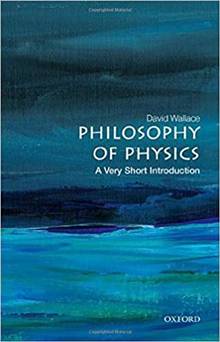Philosophy of Physics: a Very Short Introduction
Wallace, David
Éditeur : OXFORD UNIVERSITY PRESS
ISBN papier: 9780198814320
Parution : 2021
Code produit : 1450325
Catégorisation :
Livres /
Science /
Littérature scientifique /
Littérature scientifique générale
Formats disponibles
| Format | Qté. disp. | Prix* | Commander |
|---|---|---|---|
| Livre papier | En rupture de stock** |
Prix membre : 10,76 $ Prix non-membre : 11,95 $ |
*Les prix sont en dollars canadien. Taxes et frais de livraison en sus.
**Ce produits est en rupture de stock mais sera expédié dès qu'ils sera disponible.
Description
Very Short Introductions: Brilliant, Sharp, InspiringPhilosophy of physics is concerned with the deepest theories of modern physics - notably quantum theory, our theories of space, time and symmetry, and thermal physics - and their strange, even bizarre conceptual implications. A deeper understanding of these theories helps both physics, throughpointing the way to new theories and new applications, and philosophy, through seeing how our worldview has to change in the light of what we learn from physics.This Very Short Introduction explores the core topics in philosophy of physics through three key themes. The first - the nature of space, time, and motion - begins by considering the philosophical puzzles that led Isaac Newton to propose the existence of absolute space, and then discusses how thosepuzzles change - but do not disappear - in the context of the revolutions in our understanding of space and time that came first from special, and then from general, relativity. The second - the emergence of irreversible behavior in statistical mechanics - considers how the microscopic laws ofphysics, which know of no distinction between past and future, can be compatible with the melting of ice, the cooling of coffee, the passing of youth, and all the other ways in which the large-scale world distinguishes past from future. The last section discusses quantum theory - the foundation ofmost of modern physics, yet mysterious to this day. It explains just why quantum theory is so difficult to make sense of, how we might nonetheless attempt to do it, and why the question has been highly relevant to the development of physics, and continues to be so.ABOUT THE SERIES: The Very Short Introductions series from Oxford University Press contains hundreds of titles in almost every subject area. These pocket-sized books are the perfect way to get ahead in a new subject quickly. Our expert authors combine facts, analysis, perspective, new ideas, andenthusiasm to make interesting and challenging topics highly readable.























